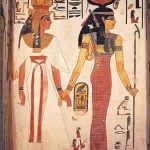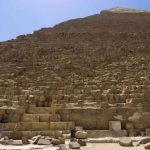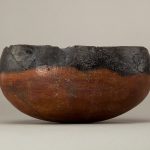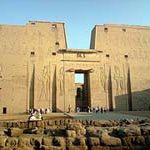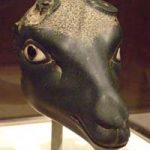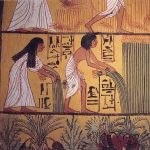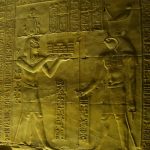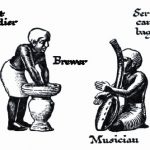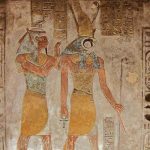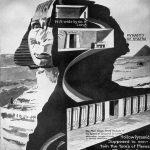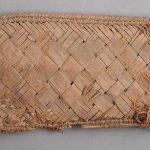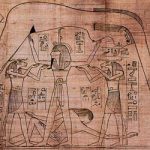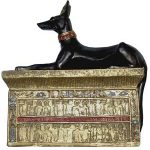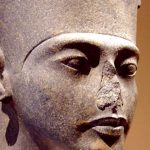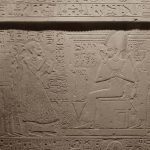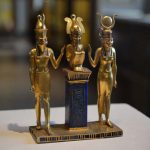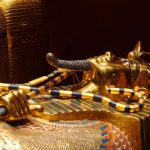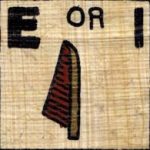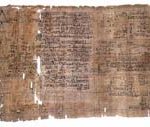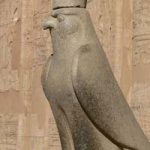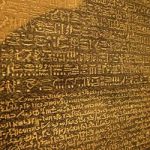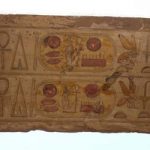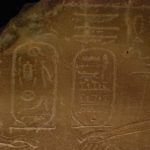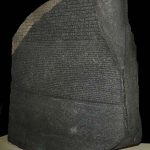Musical Instruments
Through the study of hieroglyphs, researchers have learned that there were many ancient Egypt musical instruments. There are depictions of instruments of all kinds, including string, wind and percussion. The hieroglyphs also show those listening to music clapping their hands along with the performances.
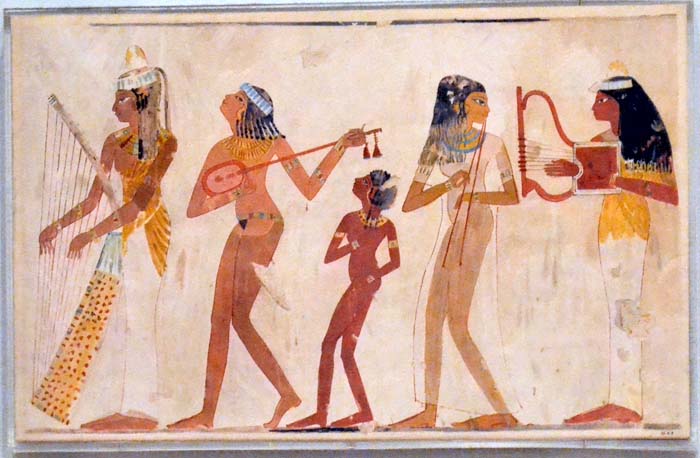 © ketrin1407 – Wall Painting Depicting Musicians
© ketrin1407 – Wall Painting Depicting Musicians
Ancient Egypt musical instruments found buried with the dead often have the names of the Egyptian gods Hathor and Bes, who were the gods of music, inscribed on them. Percussion instruments included rattles, drums and bells as well as something called a sistrum.
The sistrum was a metallic instrument held in the hand that was in a “U” shape. There were small metal or bronze pieces tied to the sistrum so that when it was moved, it made sounds. The sound differed depending on the type of metal used.
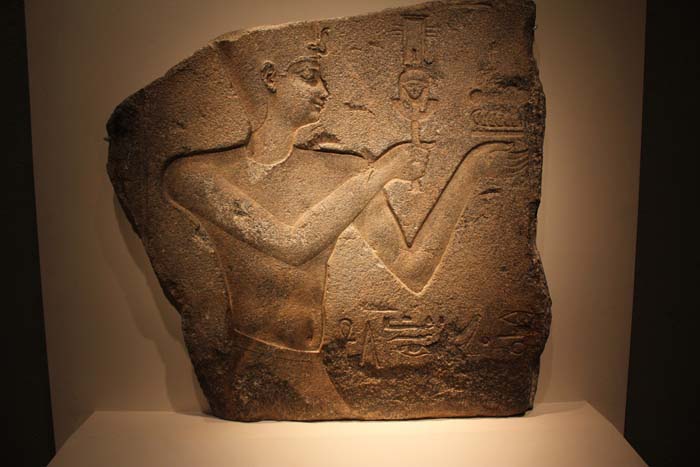 © Daniel DeCristo – Relief of Ptolemy II with a Sistrum
© Daniel DeCristo – Relief of Ptolemy II with a Sistrum
The wind instruments found were similar to those used today, such as trumpets and flutes while stringed instruments included lyres, harps and lutes. Ancient Egyptians did not use bowed instruments like today’s violin, but instead played stringed instruments with their fingers. The lyreswere introduced around 2500 BC in nearby Syria , while the lute was used more widely during the New Kingdom period.
Harps were special in that they were of a much more complex design than other string instruments, and it was also common to deck out a harp with precious materials such as ebony, silver, gold, lapis lazuli, malachite, or anything valuable both monetarily and aesthetically.
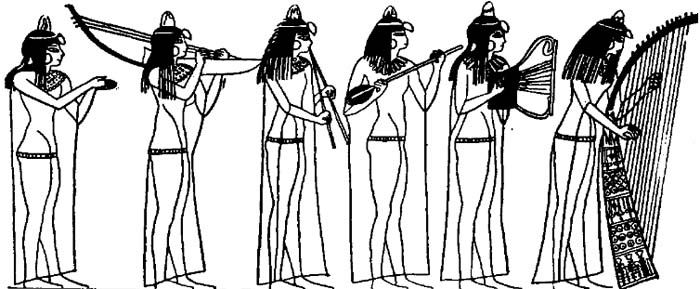 Illustration of Musicians in Ancient Egypt
Illustration of Musicians in Ancient Egypt
Professional Musicians
The highest status for a musician in ancient Egypt was for temple musicians as playing music for a particular god or goddess placed someone in a high position in the culture. In addition, musicians who played for the royal family were also held in high regard as were gifted singers.
Musicians who acted as entertainment, even for royalty, at parties and festivals, were lower on the social scale than those who performed regularly in palaces or temples. There is very little information on amateur musicians in ancient Egypt which indicates that it was not considered favorable to achieve musically unless the individual was a professional.
 Musicians in Ancient Egypt
Musicians in Ancient Egypt



